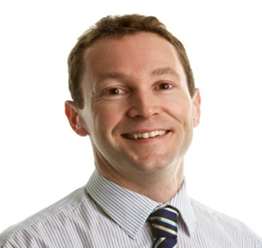About Us
The Manchester Centre for Genomic Medicine (MCGM) located on the 6th floor of Saint Mary’s Hospital, is one of the largest consultant led departments of its type in Europe and consists of integrated clinical, diagnostic laboratory and research, a large unit of 270 staff consisting of Consultants, Scientists, Genetic Counsellors, Nurses, Admin staff and Academics, provide services for a population of 5.7 m people across the North West delivered through outpatient clinics in St Mary’s Hospital and outreach clinics across the North West.
The Centre provides co-ordinated care for patients and families with rare genetic disorders; offering diagnosis, counselling and clinical management of conditions including Cancer, Cardiac, Developmental Disorders, Eye Disease and Neuropsychiatric / Neuromuscular conditions from a single regional centre. We deliver several multidisciplinary specialist clinics for rare disorders such as Rett syndrome, Angelman syndrome, Charge syndrome and skeletal dysplasias. Our clinical expertise is recognised by NHSE directly commissioning a number of Highly Specialised Services, all of which are available to NHS patients in England and devolved nations; these include Neurofibromatosis Type 1 and Type 2 (NF1 and NF2) and Lysosomal Storage Disease (LSD). The latter is delivered by Paediatric Metabolic Unit (Willink) which transferred to the 6th Floor on the merger and relocation of the Children’s Service in 2009.

Divisional Director for Genomics
The service saw in excess of 12,000 patients and tested over 100,000 laboratory samples in 2017/2018. In addition to our outpatient services we attend multidisciplinary meetings across a wide range of specialties.
Patients have input into the delivery of our services through the Genomic Patient Advisory Group.
Our diagnostic laboratory services were successful accredited to the ISO 15189 standard in November 2017. This is a requirement for Medical laboratories, providing evidence of our quality and competence to international standards.
In supporting the use of genetics in all parts of healthcare staff from Genomic Medicine continue to deliver the Health Education England funded MSc in Genomic medicine for doctors and nurses. Since September 2016 we have also been the national centre for delivering the MSc in Genomic Sciences, delivering Specialist Training programme for counsellors and laboratory scientists.

Clinical Head of Division for Genomics
In 2014 we were successful in becoming one of the Genomic Medicine Centres delivering the 100k Genome project. This is a national project. The initiative involves collecting and decoding 100,000 human genomes – complete sets of people’s genes – that will enable scientists and doctors to understand more about specific conditions.
The project has the potential to transform the future of healthcare. It could improve the prediction and prevention of disease, enable new and more precise diagnostic tests, and allow personalisation of drugs and other treatments to specific genetic variants. MCGM recruited the first patient to the scheme and currently have recruited 4336 rare disease patients and 670 Cancer patients
The legacy of the developments created by the 100,000 genomes project will lead to a new commissioned group of Genomic Central Laboratory Hubs (GCLHs) 7 across England. MCGM were recently awarded the status as North West GLH by NHS England.
Building on the world-leading expertise within the Centre many of our Consultants also lead research teams. Led by Professor Jill Clayton-Smith, an international team bid for and were awarded the ITHACA European Reference Network project, this aims to improve the care of individuals with rare congenital malformations and intellectual disability. The ERN will improve access to diagnostic opinions for patients, help guide management of rare diseases, provide teaching and training, undertake collaborative research and establish and utilise rare disease registries.
In addition to ITHACA, our clinical staff is involved in additional ERNs, including ophthalmology, inherited cancer and metabolic disease.
We have a strong track record of Clinical Trials within the Centre and currently have received approx. 1million pounds in income to deliver these trials some of which have transitioned them into clinical service
Continuing our international work, the Centre has led multiple visits to Beijing, China, to deliver a Masters course to Chinese doctors at the Peking Academic Health Science Centre. We are sharing our expertise which has built up over many decades, so doctors in China can improve the way they care for their own patients.


